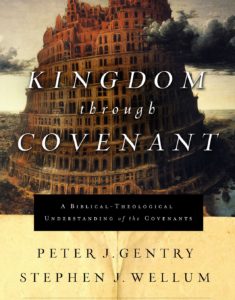While these nineteenth century Christians [pietists] forgot the world for themselves, we run the danger of losing ourselves in the world. Nowadays we are out to convert the whole world, to conquer all areas of life for Christ. But we often neglect to ask whether we ourselves are truly converted and whether we belong to Christ in life and in death. For this is indeed what life boils down to. We may not banish this question from our personal or church life under the label of pietism or methodism. What does it profit a man if he gains the whole world, even for Christian principles, if he loses his own soul?
Herman Bavinck, The Certainty of Faith, 94 as cited in John Bolt, Bavinck on the Christian Life: Following Jesus in Faithful Service, Theologians on the Christian Life, ed. Stephen Nichols and Justin Taylor (Crossway, 2015), Kindle Locations 228-233.

 Sinclair Ferguson uses the Marrow controversy in 18th century Scotland as a historical lens through which to examine the issues of legalism, antinomianism, and assurance. Ferguson’s thesis, as reflected in the title of the book, is that both legalists and antinomians err in separating the benefits of Christ from Christ himself. The solution to both is to not seek the benefits of Christ apart from the person of Christ. In all, this is a helpful book full of interesting history and insightful theology. I think the one improvement could be situating the response of Boston and the Marrow men in the broader context of Reformed theology. Did they respond similarly or differently to these problems than Reformed theologians in other times and places? In the multitude of historical counselors there is oftentimes safety.
Sinclair Ferguson uses the Marrow controversy in 18th century Scotland as a historical lens through which to examine the issues of legalism, antinomianism, and assurance. Ferguson’s thesis, as reflected in the title of the book, is that both legalists and antinomians err in separating the benefits of Christ from Christ himself. The solution to both is to not seek the benefits of Christ apart from the person of Christ. In all, this is a helpful book full of interesting history and insightful theology. I think the one improvement could be situating the response of Boston and the Marrow men in the broader context of Reformed theology. Did they respond similarly or differently to these problems than Reformed theologians in other times and places? In the multitude of historical counselors there is oftentimes safety. Lloyd-Jones, D. M.
Lloyd-Jones, D. M.  In this volume Wellum and Gentry embark on the ambitious project of laying out a third way between covenant theology and dispensationalism. They label their position New Covenant Theology or Progressive Covenantalism (others who hold a similar position are Tom Wells, Fred Zaspel, John Reisinger, Thomas Schreiner, and Jason Meyer). [Update 4/21/16: The authors wish to distinguish PC from NCT. The two share some similarities, but they do not wish them to be equated. Since Schreiner and Meyer both contribute to the new book on
In this volume Wellum and Gentry embark on the ambitious project of laying out a third way between covenant theology and dispensationalism. They label their position New Covenant Theology or Progressive Covenantalism (others who hold a similar position are Tom Wells, Fred Zaspel, John Reisinger, Thomas Schreiner, and Jason Meyer). [Update 4/21/16: The authors wish to distinguish PC from NCT. The two share some similarities, but they do not wish them to be equated. Since Schreiner and Meyer both contribute to the new book on